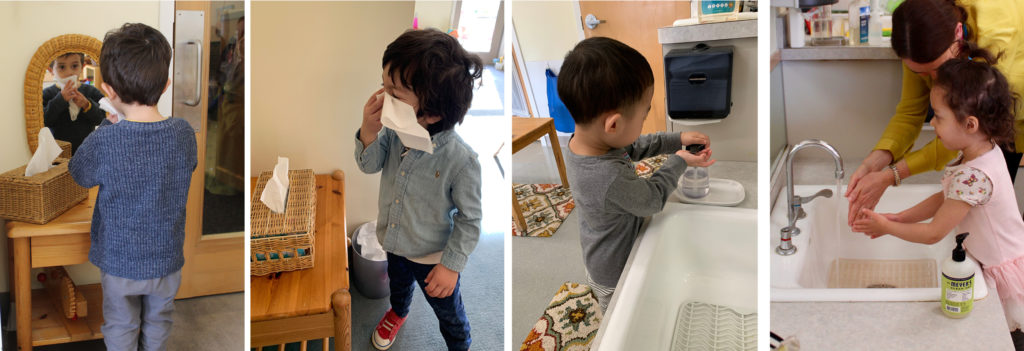Self-Care in Montessori Education In the realm of schooling, the Montessori technique sticks out for its holistic approach, emphasizing not most effective educational getting to know however additionally the nurturing of critical life competencies.
Central to this philosophy is the concept of self-care, a essential issue that encompasses the bodily, emotional, and cognitive nicely-being of the kid. In this introductory exploration, we delve into the significance of self-care inside the Montessori framework, illuminating its function in fostering independence, resilience, and a deep sense of self-awareness in younger inexperienced persons.
From sensible life activities to emotional regulation techniques, self-care in Montessori transcends mere personal hygiene; it will become a transformative adventure that empowers children to navigate the complexities in their internal and outer worlds with self assurance and charm.
Self-Care in Montessori Education
CARE OF PERSON
-
Grooming
- Self-Care in Montessori Education Children need to learn how to wash their faces and hands, cut and care for their nails, brush their teeth, blow their noses, braid, and brush their hair. Each activity is taught to the child step by step in a simple, direct fashion as an would perform the job in their own home. No special knowledge or procedure is needed. Simply teach the child what is necessary in daily life. This is illustrated below in the lesson on washing hands.
Example 1: WASHING HANDS
Tell the child you’d like to show him how to wash his hands. Have the child join you at the sink. It is probably best to show his or her hands as the child would be expected to do so at home. Show the child how the faucet works and how to get cold, hot, and warm water . illustrate how to test the temperature of the water so as not to get water too hot or cold. Let the child experiment until he or she gets a temperature which is pleasant for washing hands.
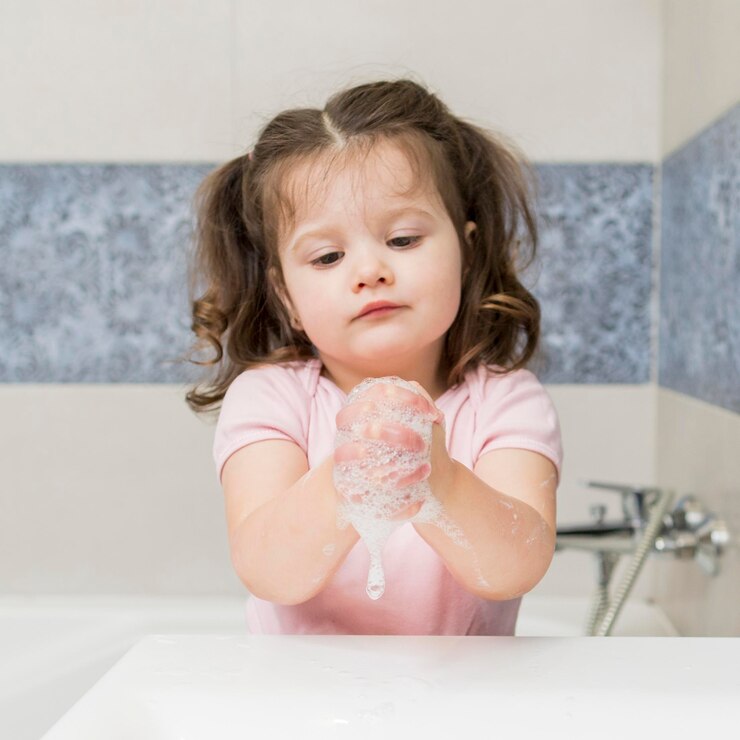
Have the child notice any dirt on his or her hands. Then, have the child moisten his or her hands and take a bar soap and lather palms, fingers, and backs of hands. Have the child turn off the water anytime he or she is not directly using it to either moisten or rinse his or her hands. Briefly mention that this saves water.
Show the child how to rub all parts of the hands – between fingers, wrists, back of hands, as well palms. Have the child rinse off the soap and see if any dirt remains. If a spot is found, have the child re-apply soap to that spot, rub and then rinse and back again. When the hands are clean, show the child how to dry his or her hands with a towel. If a paper towel is used, show the child where to dispose of it. If a cloth towel is used, show the child how to fold and replace it on the towel rack.
Example 2 :WASHING FACE
Self-Care in Montessori Education Show the child how a person normally washes his or her own face. Avoid using a pure soap that would dry out the skin. Have the child watch what he or she is doing in a mirror . Help the child learn to avoid getting water in the eyes. Show the child how to pat his or her face dry.
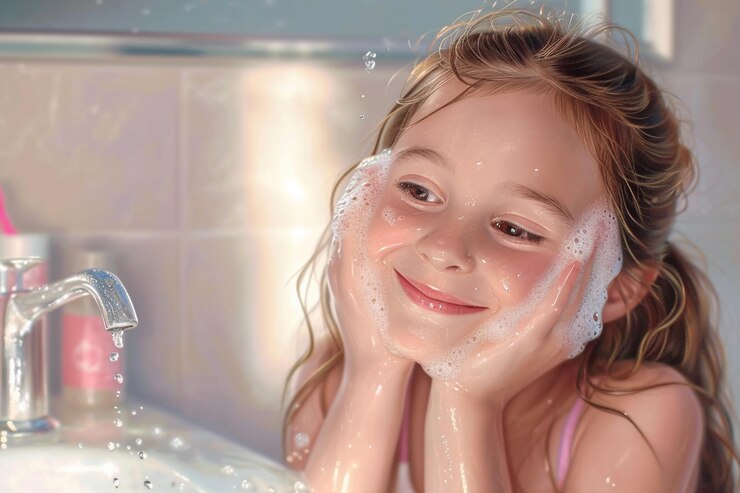
Example 3:BLOWING NOSE
Self-Care in Montessori Education Children sometimes have a hard time distinguishing between blowing out of their nose and breathing in. they should be shown how to blow gently, how to hold the tissue, and to look into the mirror to see if their nose is clean.
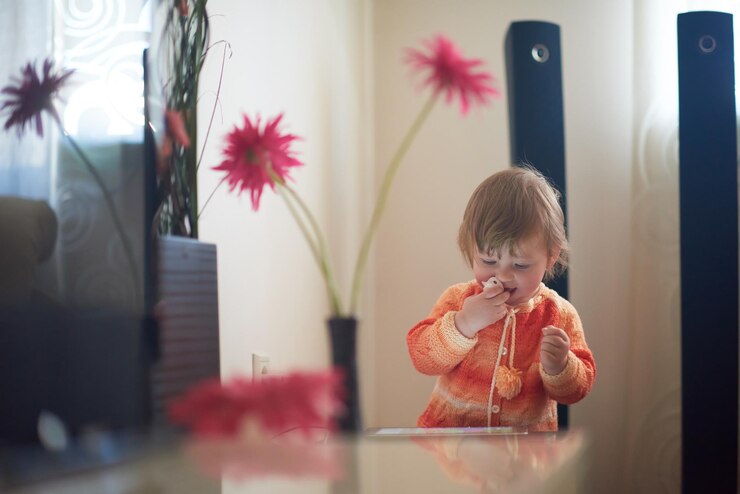
When children are little, they don’t always notice when their nose is running. The teacher can help them notice. Looking in the mirror can be a check. Then, a tissue should always be convenient so that the child can use it instead of his or her arm or clothes.
Example 4 :BRUSHING TEETH
Self-Care in Montessori Education Children need to learn the care of teeth. It is important not to scare or worry the children about tooth decay. It is especially important that they do not fear the dentist. So, the emphasis is on how to take good care of teeth and how the dentist helps. Often local health authorities or a local dentist will supply a tooth brush for each child. Each tooth brush should then be labeled and each child should have his or her own place to keep it.
The emphasis on brushing teeth should be on the best way to brush the teeth to keep the teeth clean and the gums healthy rather than on the good taste of toothpaste. Therefore , in the beginning, anyway, it is probably best to have the children simply brush their teeth with water.
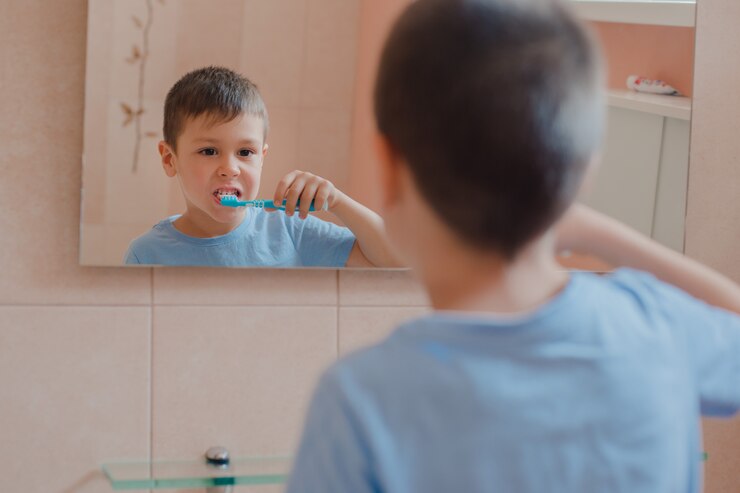
A local nurse, dental hygienist, or dentist is often interested in visiting the classroom or in having the children visit the dentist’s office. Sometimes they have a film they like to show. However, with young children, it is probably preferable if the teacher gets the information from the dentist who gives the children short, simple individual lessons appropriate. Later, the children may enjoy a visit to the dentist’s office. Children will enjoy learning about teeth. They will be interested in pictures which show the different kinds of teeth, the parts of teeth, and the placement of teeth in the mouth.
Example 5 :COMBING, BRUSHING, BRAIDING HAIR
Self-Care in Montessori Education Children will want to learn how to fix their hair. It is nice if they can each have their own comb or brush to keep and use. They will probably want to try combing and brushing their hair in different ways. The teacher can show them how to comb and brush all sides of the head. Sometimes the children like to comb each other’s hair.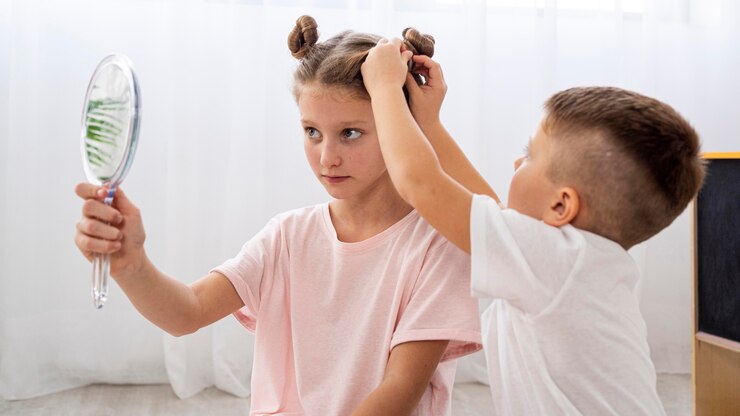
Conclusion:
Self-Care in Montessori Education The Montessori method to training stands proud for its holistic emphasis on nurturing both academic studying and important lifestyles abilities, with self-care being a cornerstone of this philosophy. By instilling practices which include grooming and private hygiene inside the framework of sensible existence sports, children no longer most effective acquire essential competencies however additionally cultivate independence, resilience, and self-consciousness. Through step-by way of-step steerage in sports like washing arms, brushing teeth, and brushing hair, Montessori education empowers children to take charge of their bodily, emotional, and cognitive properly-being. This transformative journey equips them with the self belief and style to navigate the complexities of their inner and outer worlds with competence and self-assurance.
